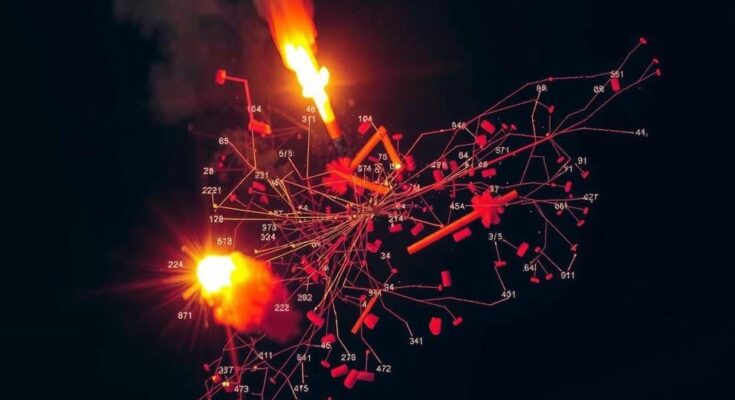Israel has launched airstrikes on Hezbollah smuggling sites in Syria, testing a fragile ceasefire that began on November 27, 2024. Despite the ceasefire, sporadic violence continues, with mutual accusations of violations from both Israel and Hezbollah. Displaced residents are cautiously returning to their homes, surrounded by destruction, as tensions persist in a complex and volatile regional context.
Israeli forces have conducted airstrikes on Hezbollah weapons smuggling sites located along the Syrian-Lebanese border, alleging that these operations represent a breach of the fragile ceasefire brokered by the United States and France. Despite the ceasefire, which began on November 27, 2024, following months of intense conflict, sporadic violence continues. Israeli military strikes included the targeting of facilities purportedly used for transferring weapons from Syria to Hezbollah in Lebanon, intensifying concerns about the stability of the ceasefire that aims to facilitate the withdrawal of combatants and restore calm in the region.
The ceasefire agreements mandated Hezbollah to retreat north of the Litani River, while Israeli forces were also instructed to withdraw from Lebanese territory. Nevertheless, both sides have accused each other of violations. Amidst this backdrop, displaced residents have begun returning to their villages, albeit warily, as the tensions simmer beneath the surface.
Additional violence was reported, including an Israeli drone strike on a vehicle in southern Lebanon, resulting in casualties. Israel asserts its right, under the ceasefire terms, to respond to any perceived violations, continuing to prioritize the safety of its citizens while remaining cautious about the potential threats posed by Hezbollah’s operational capacity.
The conflict escalated dramatically starting October 8, 2023, when Hezbollah launched attacks in solidarity with Hamas. Since then, hundreds of lives have been lost on both sides, alongside widespread destruction in Lebanon, raising questions about the long-term viability of the ceasefire and prospects for peace in the region, as thousands remain displaced.
The situation remains fluid and complex as conflicts in neighboring Syria also contribute to the volatility. Israeli military operations indicate an ongoing commitment to counter perceived threats, challenging the fragile peace that has been established.
This article discusses the recent airstrikes conducted by Israel on Hezbollah weapons smuggling locations in Syria, amidst a precarious ceasefire declared on November 27, 2024. The ceasefire agreement was intended to halt extensive hostilities, particularly since Hezbollah’s alignment with Hamas prompted increased tensions. The military actions highlight the fragility of the ceasefire, reflecting ongoing mutual accusations of violations between Israel and Hezbollah. Furthermore, the regional context, including unrest in Syria, complicates the security landscape in Lebanon.
In summary, Israel’s airstrikes on Hezbollah amidst a fragile ceasefire underscore the ongoing tension and instability in the region. The ceasefire agreement, aimed at reducing hostilities, is being tested by continued military engagements and accusations of violations by both parties. The situation remains precarious, with many residents returning to their homes amid destruction, and uncertainties about long-term peace prospects continue to mount.
Original Source: apnews.com




